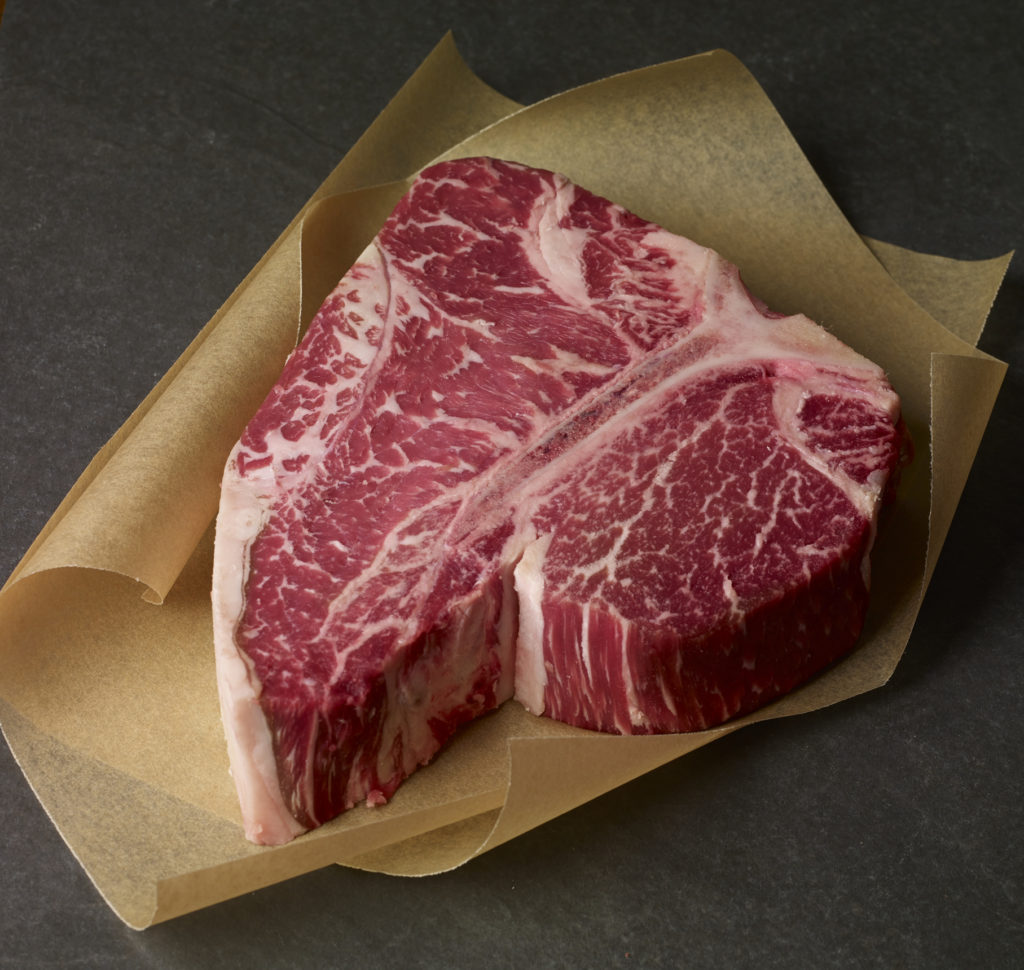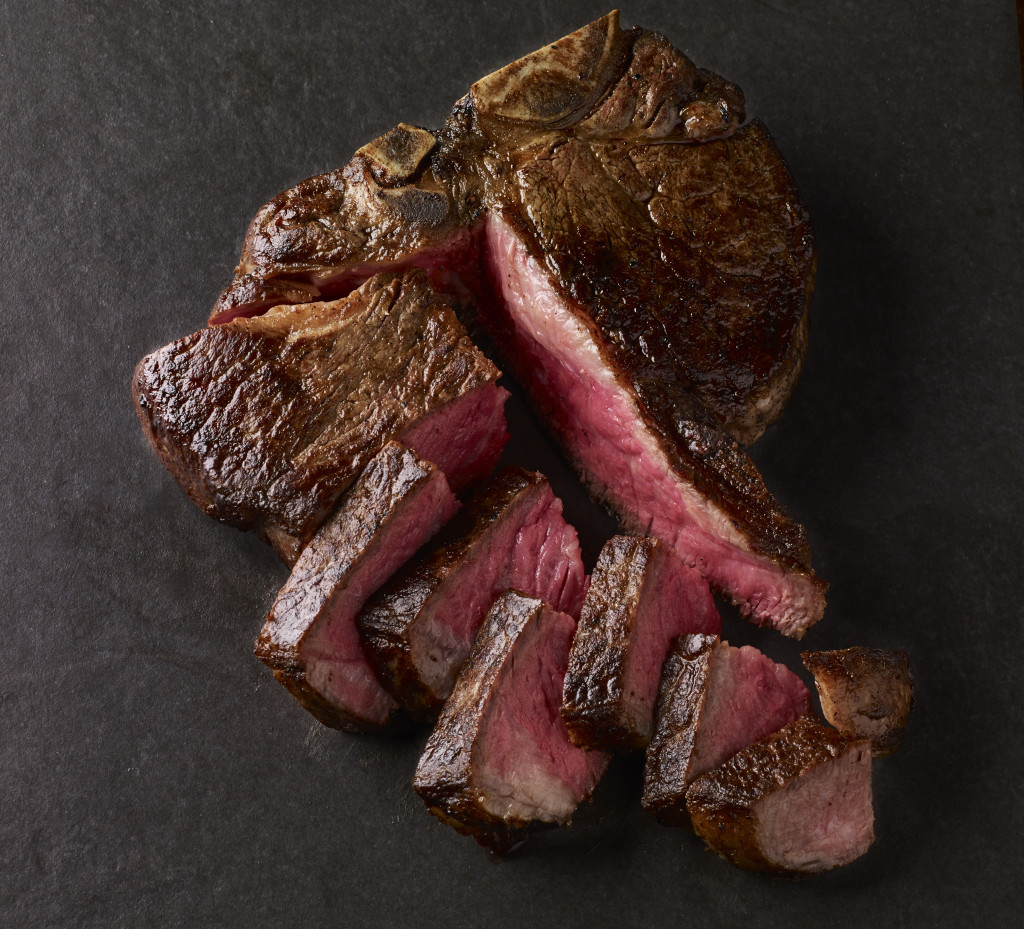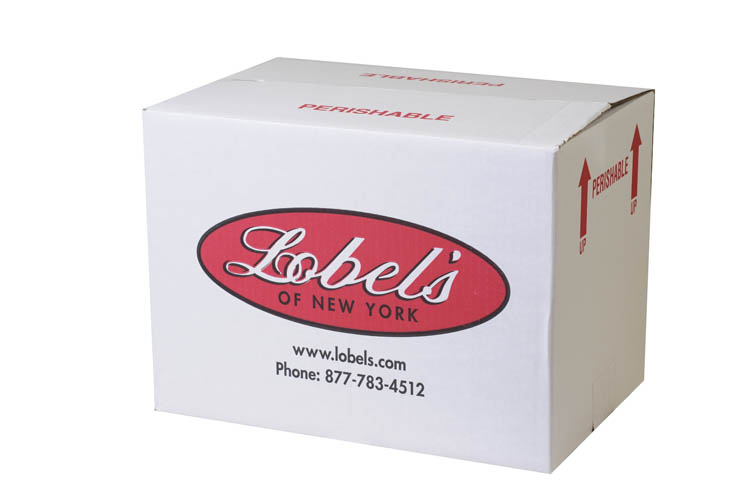Have you ever frozen a strawberry? While you may put in the freezer a plump, brilliant red, juice-filled berry, what you take out and thaw is deflated, greyish, and mushy.
That’s because, when the moisture inside the berry freezes, it expands within the strawberry and the cell walls are broken. When the strawberry thaws, the cells simply collapse, the berry purges its juices, and it no longer retains its original shape and texture.
Now, imagine doing that to the magnificent, cherry-red steak you just bought from Lobel’s of New York.

The effects of freezing meat are not as drastic and damaging as freezing a strawberry, but the longer meat is frozen, the more significant and obvious the negative effects of freezing become.
Eating Fresh: When Meat is at Its Peak
That is why we recommend eating meat that is fresh and never frozen for the utmost dining experience. You will notice the difference in that the meat is at its peak—it is juicy and flavorful, and its texture is supple and tender.

When you place an order with Lobel’s, your fresh beef, pork, veal, or lamb is hand-cut the same day it ships to you. Overnight delivery means your order arrives on your doorstep ready to cook—no long defrosting times. And fresh meat is more versatile: You can cook it right away, keep it in your refrigerator for up to a week, or freeze it.
You Can’t Freeze Forever
The first thing to know about freezing is that it is a dehydrating means of preserving food. And just because you freeze something, that doesn’t mean it will last forever and retain the same qualities it had when it was fresh.
This becomes apparent when you thaw a frozen product. First, you’ll notice the amount of liquid in the packaging. As with the strawberry, the moisture inside the meat muscle cells freezes and expands, breaking down some of the cell walls, which then purge their liquid as the meat defrosts.
Second, the loss of inherent moisture causes the meat to become chewier, less tender, and drier, which negatively affects our perception of the eating experience.
To minimize the effects of freezing, plan to consume any frozen product within 2 weeks of going into the freezer. In that short amount of time, freezing will have minimal noticeable effects. However, the dehydrating effects of freezing will increase as time passes.
If you really need to push the envelope and anticipate what you know about the effects of freezing, beef can be frozen for up to 6 months, while veal, pork, and lamb should be frozen for no more than 3 months.
Ordering for Freshness
When ordering fresh meat from Lobel’s, it is a good idea to plan what you are going to do with the meat when your order arrives.

Decide beforehand which products you will cook fresh, within 7 days of delivery. And choose which products you will freeze. That way, any meat you plan to freeze can go in the freezer as soon as possible after the package arrives.
When seeking maximum enjoyment of your fine Lobel’s meat, remember: There is no equivocation when it comes to freshness—it is fresh or it is not. When purchasing frozen product, you never really know how long ago it was cut and frozen.
How to Freeze Properly
Plan A: If you are going to freeze our fresh meat, it is best to leave it in the original vacuum-sealed packaging in which it arrived because there is no air inside the packaging that could be the breeding ground for further deterioration: freezer burn.
As you can see in the photo, meat that has not been properly prepared for freezing doesn’t look all that great because of freezer burn, ice crystals on the surface, and—in some cases—darkened color.

Plan B: If you have to open the package, use a portion, and then freeze the balance, the best way to go is with an in-home vacuum-sealing machine.
Plan C: Wrap the meat tightly in plastic wrap, smoothing it against all surfaces to eliminate any air pockets. Then, wrap the meat again in aluminum foil, put a piece of tape on the package, and label it to show the type of cut and the date on which it went into the freezer.
In the End
Admittedly, freezing part of your Lobel’s order may be desirable or necessary. With a little knowledge and proper planning, you can prepare and enjoy your fresh meat when it is at its best, or you can freeze it and minimize the damaging effects.
Do you regularly freeze all or part of your Lobel’s order? How do you prepare it for the freezer? Can you tell the difference in flavor, tenderness, and juiciness between fresh and frozen meat? What is your experience with eating meat that has been frozen?



Leave Your Response